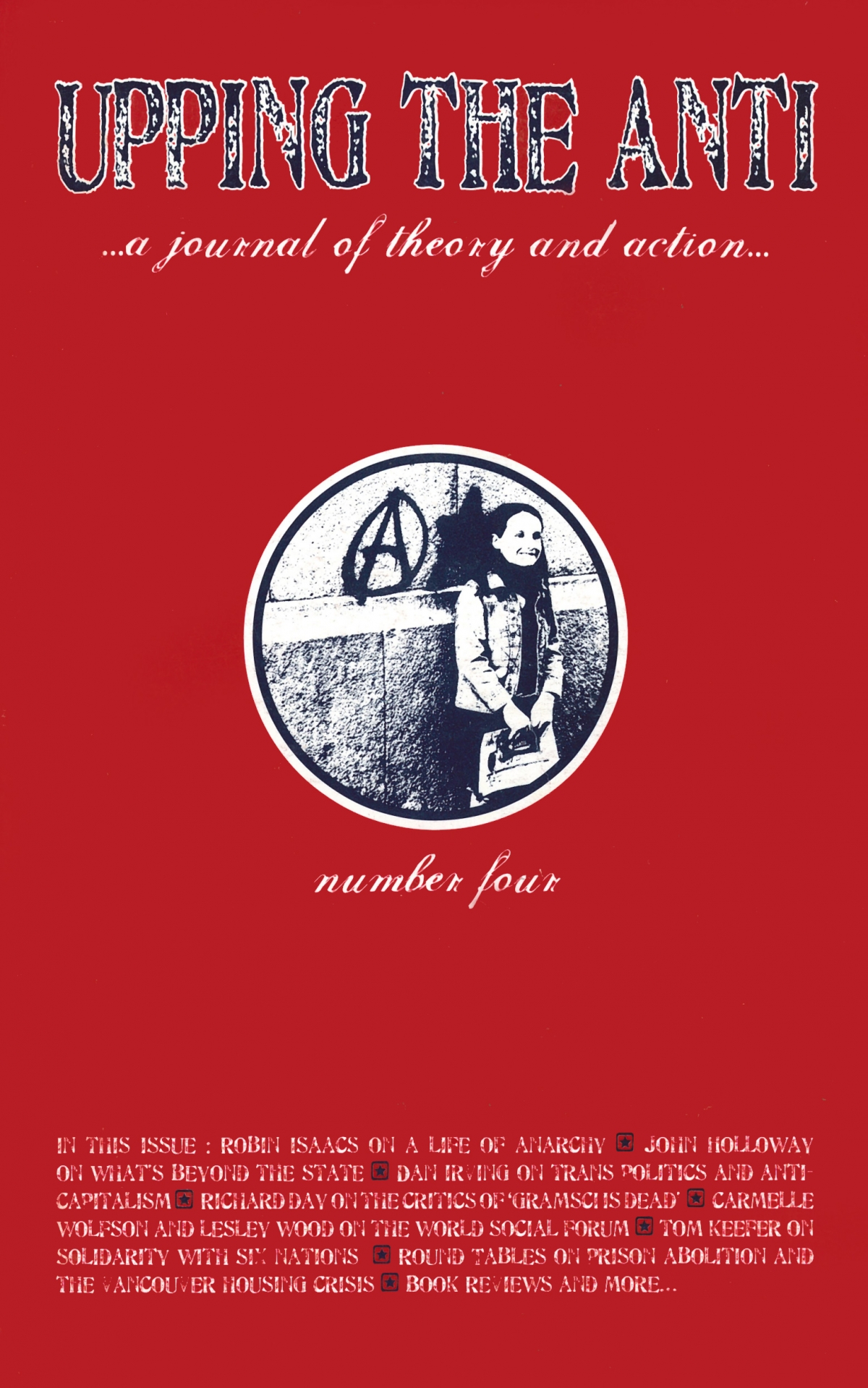Pain and the Other
Dear readers,
In “Growing Pains,” the editorial from UTA 3, it is suggested that both those committed to the united front and those working from the standpoint of a pedagogy of confrontation share a concern with the question of responsibility to the Other. Further, “Growing Pains” argues that the divergence between the united front and the pedagogy of confrontation arises from the incomplete character of each of their attempts to reckon with the specific tasks entailed by that responsibility. I find this to be a useful and provocative attempt to bridge two modes of political resistance despite the substantial differences between them.
However, while I understand that the editorial’s focus on the question of responsibility to the Other was meant as a report on an already present dynamic, I’m concerned that it nevertheless perpetuated an abstract Self-Other separation that erases the specificities of the lived body in activist practice.
I have no doubt that being witness to the suffering of the Other can often provide motivation to act. In Sherene Razack’s terms, locating oneself on the map of imperialism and becoming aware of our implication in the suffering of others is crucial for the formation of a solidarity politics. But what affects the content of this politics? All this “responsibility” tells me is that people respond to the suffering of others in different ways – as was made clear in the editorial.
As important as recognizing our responsibility to the Other is, I don’t think it provides a framework for addressing the fragmentation and blocks in communication that “Growing Pains” sought to address. If the Other is going to be a useful reference point, we will have to contemplate more than the abstract Other “out there.” We will have to learn how to address the concerns and differences of others with whom we stand.
Feminist poet and activist Audre Lorde argued that activists need to “reach deep inside themselves” to confront the Other. She urged us to resist the tendency to construct the Other as an object toward which we – as subjects – might act in solidarity. In order to resist that tendency, activists would have to confront the process by which the common sense of domination (what Lorde called “mainstream communication”) has come to inform the ways we are taught to speak and listen to one another.
Similarly, feminist author and activist Gloria Anzaldúa has argued that “public acts” require “inner work.” For Anzaldúa, we are only able to bear witness to suffering and become “makers of historias” if we risk our own safe spaces. She argues that, while this process hurts, it enables activists to perceive the interconnectedness necessary for the formation of political coalitions.
Canadian-based anti-war activist and writer Leah Lakshmi Piepzna-Samarasinha echoes these concerns in the context of current anti-war activism. In response to the tendency for the movement to marginalize participants, Piepzna-Samarasinha asks us to consider how activist vulnerabilities inform tactics. Focusing on the lived body, she considers modes of resistance like cooking, stickering, resting, laughing, fucking, and crying. While there is, of course, the need for centralized organizing, she urges us to consider both “a time to hole up and a time to kick ass.”
Trying to locate motivation for action as a response to an abstract Other perpetuates an untenable separation between the Self and Others. In turn, this separation re-enacts the erasure of the lived body so common to leftist politics. At the same time, it evades our failures to create genuinely inclusive spaces.
Thirty years of feminist anti-imperialist practice reveals that Self-Other relations must be viewed as intrinsic to activism itself. Despite being derided through the feminization of “emotional labour,” the questions posed by these relations are both difficult and painful. Following in this tradition, I would like to propose an alternate set of questions for working through our successes and failures of incorporating anti-imperialism into the anti-war movement: What have we done to transform our responsibility to the people with whom we work? How might we organize to better respond to different needs, desires, and visions of justice? And, finally, what could a focus on the lived body teach us about tactics?
A “Quebec City” against the war? It sounds really, really good. But we should not let our enthusiasm get in the way of dealing with questions we cannot responsibly avoid.
Sincerely,
Anna Feigenbaum
London, England

